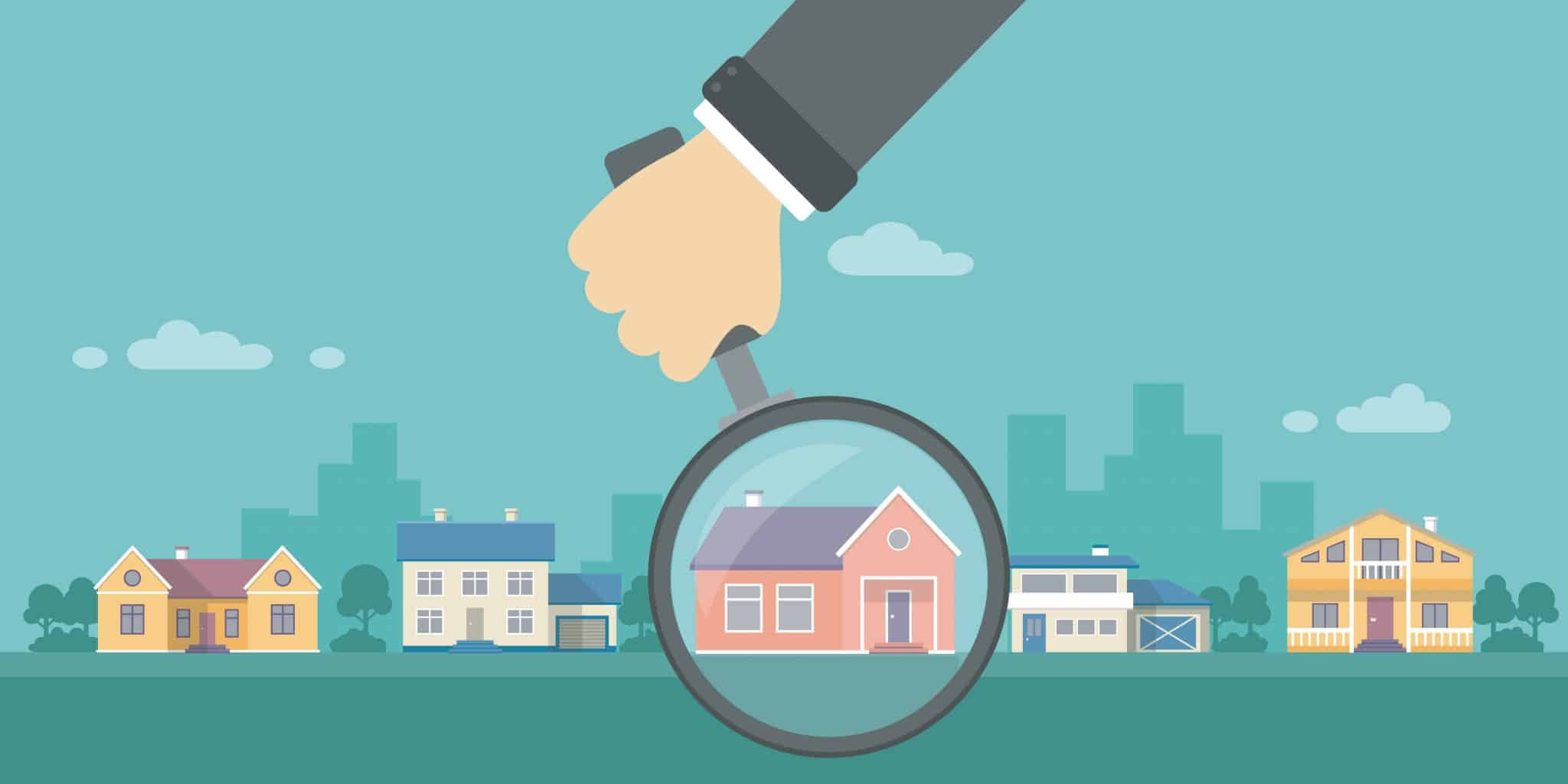
Published
What is a foreclosed home? | Steps to buy a foreclosed home | Types of foreclosed homes | FAQ
If you’re a home buyer on the hunt for a bargain, a foreclosed home could present a great opportunity. Because banks don’t want to hold onto foreclosures, they’re often more willing to sell at below-market prices. The trade-off is you’ll buy the home “as is,” with no expectation that the seller discloses problems.
Foreclosures might be more affordable, but the process of how to buy a foreclosed home can be long and difficult to navigate on your own. An experienced, specialized realtor can help you decide if a foreclosed home is a good bargain.
» SAVE: Buy with an experienced agent, get cash back after closing (learn more)
What is a foreclosed home?
A foreclosure is a legal process in which a bank or lender seizes a property after the homeowners default on the mortgage. The bank then sells the foreclosed home to recoup money still owed to them on the mortgage.
Here are the most common types of foreclosure homes (learn more):
| » Pre-foreclosure: Best for first-time buyers of foreclosure home |
| » Short sale: Best for buyers who can wait up to 6 months to close |
| » Foreclosure auction: Best for more experienced buyers who have cash on-hand |
| » Real estate–owned (REO): Best for avoiding auctions but still getting a bargain |
| » HUD home: Best for avoiding auctions and buyers who have cash on-hand |
How to buy a home in foreclosure
Steps to buy:
- Finding an agent
- Mortgage preapproval
- Finding foreclosures
- Tour and assessment
- Offer
- Appraisal
- Closing
Step 1: Connect with an agent
It’s always smart to team up with a real estate agent, preferably one who has experience buying foreclosures. You can even look up specialized agents on Realtor.com (filter by SFR credentials to find Short Sales & Foreclosure Resource agents).
A good agent can help you:
- Find more opportunities. Your agent will have their ear to the ground, helping you act fast on homes that meet your needs.
- Navigate tricky closing processes. With certain types of foreclosures, such as REO and HUD homes, you have to buy the home through an agent appointed by the bank or lender. Your real estate agent will know how to proceed with these transactions.
- Negotiate the best price. Your agent can run a CMA to help you decide if the foreclosure is truly a good deal.
Step 2: Get mortgage preapproval
If you’re using a loan, getting a mortgage preapproval will show sellers you’re serious about buying their foreclosed home. A preapproval letter will give you a good estimate of what you can afford — and it can help you compete with other buyers, even ones who can pay with cash.
Step 3: Find foreclosed homes
Foreclosures aren’t always marketed in plain sight. Here are some of the most popular ways you can find one near you:
- Your realtor, who will likely have insider knowledge of foreclosures or auctions. They can also scan the MLS
Step 4: Tour and assess the property
Buying a foreclosure is risky. Although you should be prepared to buy it “as is,” you should still research the home to ensure it’s a good investment. This could mean:
- Touring the property beforehand, if allowed
- Hiring a property inspector to estimate repairs
- Running a title search to uncover any liens or judgments
Note: some types of foreclosures won’t permit a tour or assessment. For example, if you’re buying a home by auction, you’ll likely have to buy the home “as is” without getting a good look at it beforehand.
Step 5: Make an offer
If you’re buying a foreclosure at an auction, the highest bidder wins. Many auctions will also require the winner to pay cash up front, either the entire amount upfront or a percentage. Before participating in an auction, do plenty of research and try to sit in on a few.
With pre-foreclosures and REOs, you’ll make an offer just as you would with a typical home sale. Work closely with your realtor to determine the right asking price, as you don’t want to go too low—or too high. A good agent will run comps, factoring in any known repairs and the neighborhood or area before arriving at a competitive offer.
✍ Editor’s tip
Although you’ll likely face less competition for a foreclosure than a normal listing, here are a few ways you could still make your offer stand out:
💰 Put down a hefty earnest deposit. Banks are risk averse. Show them you’re serious by offering a large “faith” deposit up front.
🎯 Don’t low ball. Banks rarely accept offers significantly below the home’s market value, even when costly repairs are needed. Discuss your initial offer very closely with your agent before submitting.
🏦 Take out a mortgage with the bank or lender selling the home. The lender can sell the foreclosed home and get a new client — win-win!
Step 6: Appraisal
An appraiser will give you a fairly good estimate of the foreclosed home’s market value. If you’re buying a foreclosure with a mortgage, then your lender will likely require an appraisal before approving a loan amount.
If the appraised value comes back lower than your offer, you have two options:
- Cover the difference in cash with a larger down payment.
- Renegotiate the home price with the seller.
Step 7: Closing
Be prepared to encounter setbacks, delays, and stiff resistance, especially if the bank is selling the home at a serious loss to them.
Your agent will be crucial in the closing process. They’ll guide you through paperwork, help you set up your escrow account, and do everything it takes to have the property transferred into your name.
The closing process for pre-foreclosures and REOs is similar to a normal home purchase, but it may take longer to close on a foreclosure than a typical home.
If you’re buying a home at an auction, however, be aware of some key differences:
💸 You have to pay cash. Auction-bought foreclosures have very few loan options. Often you’ll need to pay cash up front, either on the day of the auction or within a limited period.
⛔ Even if you win the bid, the property may not be yours. In some states (called “right of redemptions” states), homeowners who defaulted are given a period of time to pay back the money they owe. If they do, you would lose the house.
🔑 You might have to evacuate squatters. If the home has been vacant for some time, it could be inhabited. You’d need to file an eviction notice with an attorney and arrange for a sheriff to clear the home.
Types of foreclosed homes
The type of foreclosed home tells you where the home is in the foreclosure process, as well as the bank or lender who is selling the home. Here are the main options you’ll see:
| Type of foreclosed property good for… | Avoiding auctions | Buying quickly | Getting a bargain |
|---|---|---|---|
| Pre-foreclosures | ✅ | ✅ | ✅ |
| Short sales | ✅ | ❌ | ✅ |
| Foreclosure auctions | ❌ | ✅ | ❌ |
| Real estate–owned (REO) | ✅ | ❌ | ✅ |
| HUD homes | ✅ | ✅ | ❌ |
Pre-foreclosure: Best for first-time foreclosure home buyers
These homes are on the brink of foreclosure. Usually, the homeowners have defaulted on the mortgage, and the bank has sent a notice to pay back what is due.
You can work directly with the seller, rather than the bank, and you can often conduct a home inspection before closing on the deal.
Short sale: Best for buyers who don’t need to close quickly
A short sale happens when homeowners sell for a loss, sometimes in pre-foreclosure. Typically they owe more on the house than it’s actually worth.
You can buy directly from the homeowner, though the lender still has to approve of the offer. Since it’s lenders that can forgive sellers’ leftover loan balances, the home sale won’t close if they aren’t satisfied with the price — and that can take up to six months.
Foreclosure auction: Best for more experienced buyers
These properties have been foreclosed, and the lenders or banks are now selling them through an auction. Often these auctions happen at county courthouses, though increasingly online.
Auctions move fast, and you won’t have time to inspect the home before the auction begins. You might also need lots of cash up front.
REO: Best for avoiding auctions but getting a bargain
A real estate–owned (REO) property has gone through a foreclosure auction but was never sold. They are now being sold by the lender or bank through an REO agent.
REO homes have clean titles, and though they might need repairs, the bank or lender will usually ensure they’re livable.
HUD home: Best for house-flippers and avoiding auctions
When a home originally financed with a loan from the Federal Housing Administration (FHA) gets foreclosed, the Department of Housing and Urban Development (HUD) puts it up for sale through an appointed agent.
HUD homes are perfect if you plan to finance your purchase with a government-funded loan, such as FHA, VA, or USDA loans. They’re not a great option for investors, as HUD gives a 30-day priority to everyday home buyers before opening the listing to all.
Foreclosure FAQs
What kind of loan do I need to buy a foreclosure?
Generally speaking, you can use any major loan program to finance a foreclosure, whether that's a conventional mortgage or one backed by the FHA, USDA, or VA. If the home is in bad condition or vacant, an FHA 203(k) loan might be the best loan, since you can also get financing for repairs.
What is the cheapest way to buy a foreclosed home?
The cheapest way to buy a foreclosure is to buy a pre-foreclosure or short sale directly from a distressed homeowner.
Related reading
Are “We Buy Houses” Companies a Ripoff? “We buy houses” companies typically promise an all-cash offer and fast closing. But are they too good to be true? We found the truth about possible scams and ripoffs.
How Can I Sell My House Fast Without Losing Money? Need to sell your house fast? Here’s how to do it WITHOUT losing money or getting ripped off by a shady cash buyer.


Leave a Reply